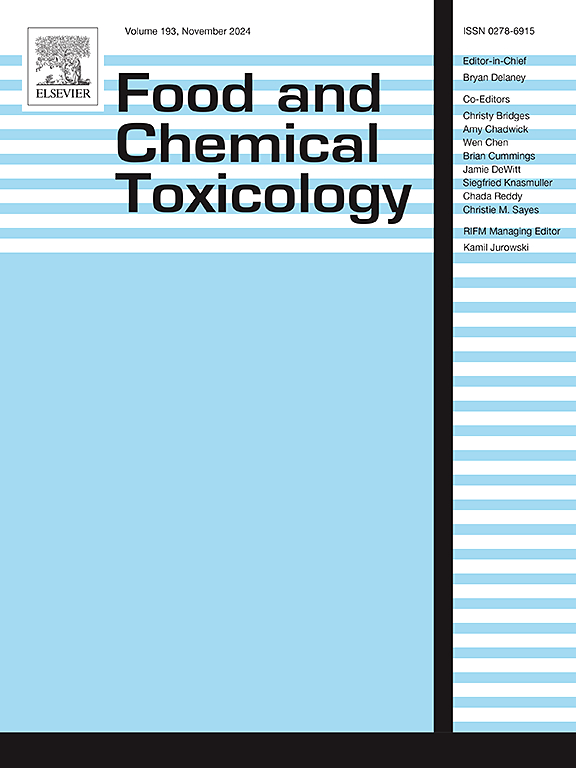A 7-year feed study on the long-term effects of genetically modified maize containing cry1Ab/cry2Aj and EPSPS genes on gut microbiota and metabolite profiles across two generations of cynomolgus macaques
IF 3.9
3区 医学
Q2 FOOD SCIENCE & TECHNOLOGY
引用次数: 0
Abstract
The health implications of genetically modified (GM) crops remain controversial relative to their non-GM counterparts, particularly regarding long-term dietary exposure. Although the gut microbiome is a key health indicator, studies investigating the impact of GM crop consumption on intestinal microbiota remain limited. This study presents a comprehensive 7-year evaluation of GM maize expressing cry1Ab/cry2Aj and G10evo-EPSPS proteins through metagenomic and metabolomic analyses. We assessed the effects of GM maize consumption on gut microbiota diversity and metabolite profiles in cynomolgus macaques (Macaca fascicularis) compared with non-GM maize. Three diet regimens were implemented: a conventional compound feed (CK group), diet formulation containing 70 % non-GM maize (Corn group), and diet formulation containing 70 % GM maize (Tg group). The results demonstrated that feeding GM maize to the first (F0) and second (F1) generations of monkeys did not substantially affect the composition, community structure, or function of the intestinal microbiome, as indicated by species composition and diversity analyses. Minor differences in intestinal metabolites were observed but were not directly linked to transgenic maize consumption. Collectively, long-term intake of maize with cry1Ab/cry2Aj and g10evo-epsps genes had no adverse effects on macaques or their offspring.

求助全文
约1分钟内获得全文
求助全文
来源期刊

Food and Chemical Toxicology
工程技术-毒理学
CiteScore
10.90
自引率
4.70%
发文量
651
审稿时长
31 days
期刊介绍:
Food and Chemical Toxicology (FCT), an internationally renowned journal, that publishes original research articles and reviews on toxic effects, in animals and humans, of natural or synthetic chemicals occurring in the human environment with particular emphasis on food, drugs, and chemicals, including agricultural and industrial safety, and consumer product safety. Areas such as safety evaluation of novel foods and ingredients, biotechnologically-derived products, and nanomaterials are included in the scope of the journal. FCT also encourages submission of papers on inter-relationships between nutrition and toxicology and on in vitro techniques, particularly those fostering the 3 Rs.
The principal aim of the journal is to publish high impact, scholarly work and to serve as a multidisciplinary forum for research in toxicology. Papers submitted will be judged on the basis of scientific originality and contribution to the field, quality and subject matter. Studies should address at least one of the following:
-Adverse physiological/biochemical, or pathological changes induced by specific defined substances
-New techniques for assessing potential toxicity, including molecular biology
-Mechanisms underlying toxic phenomena
-Toxicological examinations of specific chemicals or consumer products, both those showing adverse effects and those demonstrating safety, that meet current standards of scientific acceptability.
Authors must clearly and briefly identify what novel toxic effect (s) or toxic mechanism (s) of the chemical are being reported and what their significance is in the abstract. Furthermore, sufficient doses should be included in order to provide information on NOAEL/LOAEL values.
 求助内容:
求助内容: 应助结果提醒方式:
应助结果提醒方式:


